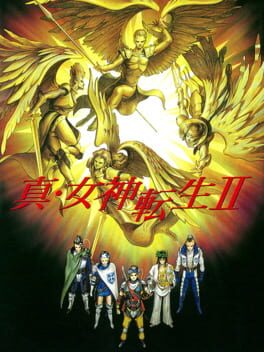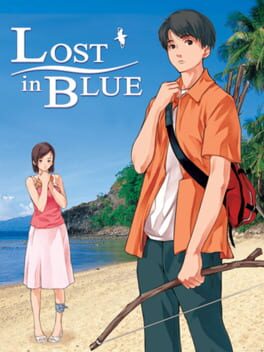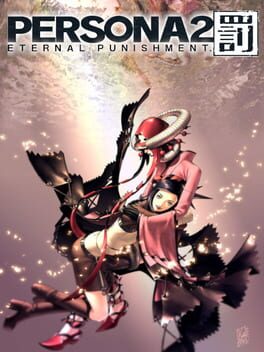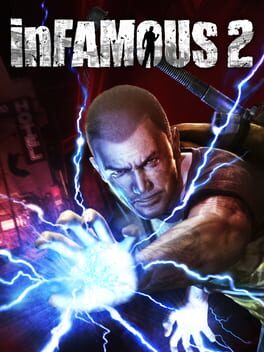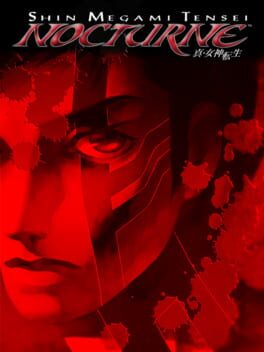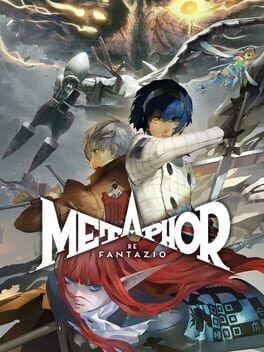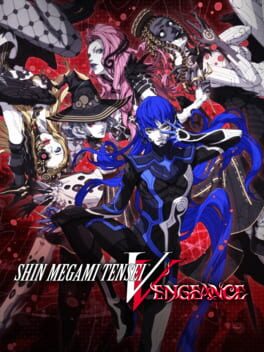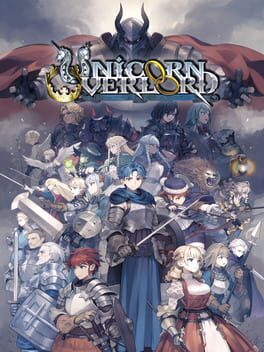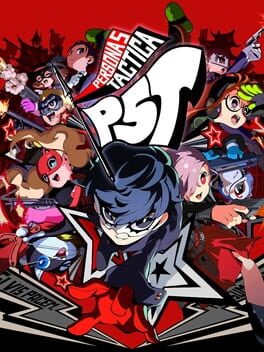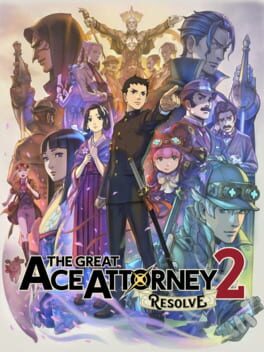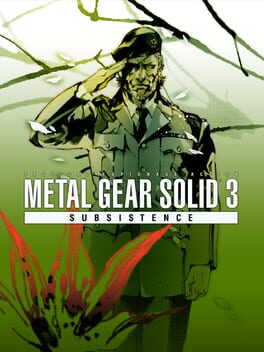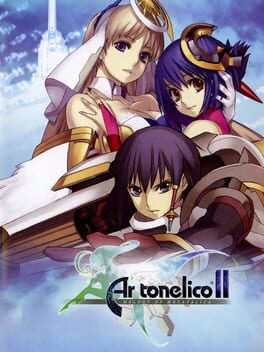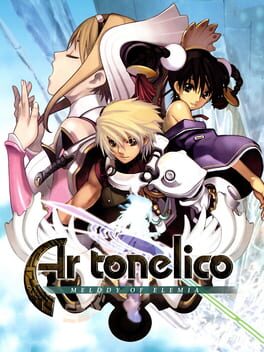Lima
8 reviews liked by Lima
SMT2 is atypical from most JRPGs in more ways than you would expect. Eschewing a traditional adventure with towns along the way is nothing necessarily new, but the way SMT2 focuses on such a sprawling but interconnected region feels pretty forward thinking. There's obvious inspiration from Western RPGs, but it also evokes Dark Souls or FF12 with its commitment to an immersive world.
There's no doubt that the world itself is incredibly interesting and creative in a lot of ways, much more so than SMT1. From the unique flavor text to the striking aesthetics of each area, Kaneko's creativity really bleeds through constantly. It makes for probably the best aspect of the exploration.
However the exploration itself often ends up as a tedious and extremely frustrating task. I mentioned Dark Souls as an example of an immersive world that SMT2 reminds me of, but Dark Souls both commits to making you move from place to place on foot and has interesting gameplay. SMT2's gameplay is, well, terrible. It's pretty much brainless levels of easy for most of the game but with a ridiculous amount of encounters. I sort of knew this would be the case going in, but even if I was able to get past the combat itself the overall design feels made to waste time to insane degrees. Most of the games runtime is made up of fetch quests which drag you around every corner of the map. I understand wanting you to explore the map, but so much of the game being inane backtracking for little gameplay or story reward gets extremely frustrating.
Unfortunately, this detracts a lot from the story a lot of the time for me as well. This is by far the aspect of the game I've seen praised the most, and I think there is good reason for this. Not only does it have a much more interesting setting than SMT1, it also has a much more interesting alignment system that feels less wishy-washy about what it's trying to say. But the structure hurts it greatly still, as the story is only interesting until it suddenly isn't again. For every long expository dialogue scene there's another 10 hours of wandering around doing random tasks afterwards with little story impact. Aleph is a cool idea for a protagonist, with a really neat twist, but it's also undermined by the fact that there's little to no interactions that build up to the twist or follow up on it. For every interesting plot point I know it will be followed by "Find the 8 Idols of shitfuck to unlock the gate" I got the Law ending and it was interesting and neat but also felt detached from the rest of the game as well, mostly functioning off a cool aesthetic. I think the story had a big chance to make up for the rest of the game for me but I came away from it with little attachment.
I might be giving SMT2 a more positive score than how it actually felt to play but I can see the appeal to such a unique game. There's a really striking creative voice behind a lot of it that even SMT1 didn't really have. I just wish it could have all come together for me to be able to see it as a masterpiece at all.
There's no doubt that the world itself is incredibly interesting and creative in a lot of ways, much more so than SMT1. From the unique flavor text to the striking aesthetics of each area, Kaneko's creativity really bleeds through constantly. It makes for probably the best aspect of the exploration.
However the exploration itself often ends up as a tedious and extremely frustrating task. I mentioned Dark Souls as an example of an immersive world that SMT2 reminds me of, but Dark Souls both commits to making you move from place to place on foot and has interesting gameplay. SMT2's gameplay is, well, terrible. It's pretty much brainless levels of easy for most of the game but with a ridiculous amount of encounters. I sort of knew this would be the case going in, but even if I was able to get past the combat itself the overall design feels made to waste time to insane degrees. Most of the games runtime is made up of fetch quests which drag you around every corner of the map. I understand wanting you to explore the map, but so much of the game being inane backtracking for little gameplay or story reward gets extremely frustrating.
Unfortunately, this detracts a lot from the story a lot of the time for me as well. This is by far the aspect of the game I've seen praised the most, and I think there is good reason for this. Not only does it have a much more interesting setting than SMT1, it also has a much more interesting alignment system that feels less wishy-washy about what it's trying to say. But the structure hurts it greatly still, as the story is only interesting until it suddenly isn't again. For every long expository dialogue scene there's another 10 hours of wandering around doing random tasks afterwards with little story impact. Aleph is a cool idea for a protagonist, with a really neat twist, but it's also undermined by the fact that there's little to no interactions that build up to the twist or follow up on it. For every interesting plot point I know it will be followed by "Find the 8 Idols of shitfuck to unlock the gate" I got the Law ending and it was interesting and neat but also felt detached from the rest of the game as well, mostly functioning off a cool aesthetic. I think the story had a big chance to make up for the rest of the game for me but I came away from it with little attachment.
I might be giving SMT2 a more positive score than how it actually felt to play but I can see the appeal to such a unique game. There's a really striking creative voice behind a lot of it that even SMT1 didn't really have. I just wish it could have all come together for me to be able to see it as a masterpiece at all.
Cyberpunk 2077
2020
Enjoyable when viewed as a holistic product and as simply a gameplay loop. Frustratingly, I never got the impression of the game being particularly "punk". Night City's fleshed out just fine, but the commentary on late-stage-capitalism didn't hit as hard as I wanted. Unfortunately I'm the kind of person that primarily plays RPGs for their storylines and I wasn't too impressed with this one. Will probably replay and revisit, especially the Phantom Liberty DLC.
I do appreciate the lack of DRM. Getting the game off GOG was a seamless experience.
I do appreciate the lack of DRM. Getting the game off GOG was a seamless experience.
Persona 3 Reload
2024
I don't have much to say that's new about this game or the original, this is a remake that lives up to the original- and even surpasses it. Something I was hopeful for yet didn't quite expect with how most remakes turn out.
The team that made this clearly holds love for the original and took tons of care to preserve its essence in as many ways possible. While it does miss some of the ludo-narrative poignance of the original and certain charms or scenes the original had, it makes up for it fully in reimagining Persona 3 in such a fresh, vivid and more satisfying manner by delving deeper into characters they couldn't do the same for in the original.
My few gripes are with the audiovisual aspects, I like the OST a lot but it's certainly not as iconic as the original which is fine but in certain songs it's a little too off. And for the visuals, on most fronts this is one of the prettiest games I've ever played yet the lighting can be completely out of sync in certain areas. Besides the things I've mentioned, this game is essentially perfect.
Now for a little personal footnote, this game came into my life when I started questioning the meaning of life and why I was alive at a very tender time of my pre-teen years, still unaware of how to deal with a loss. Back then, this game was a guiding light to me, it helped me sit with my fear of death despite how much it posessed me. Death is something I fear even to this day, this moment. But unlike 10 years ago, this time I know the meaning of my life is mine and the people I surround myself by to find. It's alright if I can't find it as long as I'm alive, my life already means something to the people that love me.
And that's fine enough, no matter when or how I pass. This realization only came to me then due to this game and today it comes back into my life in a further fully realized manner to pat me on my back and remind me of the same, to keep walking on and adore the burning glimmer and brilliance in life even if it means enduring all the suffering I have to face or that it'll all come to an end.
And as the game says, "Nothing's a waste...my life will have meaning."
The team that made this clearly holds love for the original and took tons of care to preserve its essence in as many ways possible. While it does miss some of the ludo-narrative poignance of the original and certain charms or scenes the original had, it makes up for it fully in reimagining Persona 3 in such a fresh, vivid and more satisfying manner by delving deeper into characters they couldn't do the same for in the original.
My few gripes are with the audiovisual aspects, I like the OST a lot but it's certainly not as iconic as the original which is fine but in certain songs it's a little too off. And for the visuals, on most fronts this is one of the prettiest games I've ever played yet the lighting can be completely out of sync in certain areas. Besides the things I've mentioned, this game is essentially perfect.
Now for a little personal footnote, this game came into my life when I started questioning the meaning of life and why I was alive at a very tender time of my pre-teen years, still unaware of how to deal with a loss. Back then, this game was a guiding light to me, it helped me sit with my fear of death despite how much it posessed me. Death is something I fear even to this day, this moment. But unlike 10 years ago, this time I know the meaning of my life is mine and the people I surround myself by to find. It's alright if I can't find it as long as I'm alive, my life already means something to the people that love me.
And that's fine enough, no matter when or how I pass. This realization only came to me then due to this game and today it comes back into my life in a further fully realized manner to pat me on my back and remind me of the same, to keep walking on and adore the burning glimmer and brilliance in life even if it means enduring all the suffering I have to face or that it'll all come to an end.
And as the game says, "Nothing's a waste...my life will have meaning."
Persona 3 Reload
2024
i could tell you about all the shortcomings this remake has, from lack of difficulty compared to the original, to the prerendered cutscenes lacking bite in some areas, to the removal of femc, ect.
none of those really mattered to me by the time i finished. the original persona 3 is one of the most important games of my life, a game that ended up changing how i viewed life and my own existence in it. reload was never, ever going to be anything less than 5 stars from me if they managed to stick the landing.
well, i'm typing this through tears after spending the last 30 minutes sobbing after the ending played, so yeah they stuck the landing. every emotional beat from the original hit me just as hard as they did when i was 15, and that's all i ever wanted. everything else i got was just a bonus.
memento mori
none of those really mattered to me by the time i finished. the original persona 3 is one of the most important games of my life, a game that ended up changing how i viewed life and my own existence in it. reload was never, ever going to be anything less than 5 stars from me if they managed to stick the landing.
well, i'm typing this through tears after spending the last 30 minutes sobbing after the ending played, so yeah they stuck the landing. every emotional beat from the original hit me just as hard as they did when i was 15, and that's all i ever wanted. everything else i got was just a bonus.
memento mori
Lost in Blue
2005
< 1er vistazo #104 >
-> Una de esas sorpresas inesperadas que me llevé este año... después de todo, no suelo jugar títulos que se diferencien tanto del clásico plataformas, RPG, entre otros... por lo que, al tener que meterme de lleno en las mecánicas de este juego, pude ver un nuevo mundo xP.
-> Todo parte con un naufragio... teniendo que hacer todo lo necesario para sobrevivir en una isla "deshabitada". Similar al protagonista, de seguro más de uno no tiene los saberes básicos para sobrevivir en este tipo de situaciones :v.
-> Aprendiendo de nuestro entorno, debemos abrirnos paso en toda la exploración, considerando algunos valores como hambre, sed y cansancio. Si fuera uno solo, quizá habría más libertad, pero, pasado unos días, deberemos ayudar a otro personaje que tiene el mismo destino :O.
-> Con una cueva como base, debemos planificar nuestras actividades diarias ya que, según la hora del día, podremos acceder a nuevas áreas y obtener determinados objetos que, en caso de no tener el respectivo cuidado, podríamos quedar atrapados en una zona x.X.
-> Considerando el limitado equipaje que podemos llevar, también debemos estar al tanto de la respectiva distribución, ya sea utilizando determinados objetos en el momento o tener que llevarlo a la cueva para almacenarlos... lo que termina por hacerme recordar...
-> Si bien antes mencioné que son dos personajes, por ciertos motivos, uno queda un tanto limitado en sus acciones, pero, de una u otra forma, puede ayudarnos en actividades que no seríamos capaces de realizar por nuestra cuenta...
-> UUUFFF... mientras más recuerdo toda esa travesía... más quiero desentrañar esa "atrapante" jugabilidad xP... y eso que, una vez finalizada la aventura, hay un "postgame" que le da otra perspectiva a los eventos :O.
-> Una de esas sorpresas inesperadas que me llevé este año... después de todo, no suelo jugar títulos que se diferencien tanto del clásico plataformas, RPG, entre otros... por lo que, al tener que meterme de lleno en las mecánicas de este juego, pude ver un nuevo mundo xP.
-> Todo parte con un naufragio... teniendo que hacer todo lo necesario para sobrevivir en una isla "deshabitada". Similar al protagonista, de seguro más de uno no tiene los saberes básicos para sobrevivir en este tipo de situaciones :v.
-> Aprendiendo de nuestro entorno, debemos abrirnos paso en toda la exploración, considerando algunos valores como hambre, sed y cansancio. Si fuera uno solo, quizá habría más libertad, pero, pasado unos días, deberemos ayudar a otro personaje que tiene el mismo destino :O.
-> Con una cueva como base, debemos planificar nuestras actividades diarias ya que, según la hora del día, podremos acceder a nuevas áreas y obtener determinados objetos que, en caso de no tener el respectivo cuidado, podríamos quedar atrapados en una zona x.X.
-> Considerando el limitado equipaje que podemos llevar, también debemos estar al tanto de la respectiva distribución, ya sea utilizando determinados objetos en el momento o tener que llevarlo a la cueva para almacenarlos... lo que termina por hacerme recordar...
-> Si bien antes mencioné que son dos personajes, por ciertos motivos, uno queda un tanto limitado en sus acciones, pero, de una u otra forma, puede ayudarnos en actividades que no seríamos capaces de realizar por nuestra cuenta...
-> UUUFFF... mientras más recuerdo toda esa travesía... más quiero desentrañar esa "atrapante" jugabilidad xP... y eso que, una vez finalizada la aventura, hay un "postgame" que le da otra perspectiva a los eventos :O.
"There are good things even when you become an adult... Just a few..."
Inteligente como sequência, tratando das consequências dos atos do jogo anterior, e brincando com percepções preestabelecidas, como o Joker e seus boatos. Tornando o vilão mais do que um personagem, mas uma "infecção", que reforça a temática apresentada de "Kegare" [穢れ] forma de "poluição" causada por sentimentos negativos, como inveja, angústia e principalmente pecados, focando mais nesse lado do ocultismo e da reação humana a grandes tragédias, se prendendo a superstições e opiniões públicas.
A exploração inusitada de personagens adultos, em interação e temática, é sua principal característica. Uma interação peculiar, os personagens por muito tempo nem se consideram amigos, e nem se esforçam para ser, apenas seguem o mesmo objetivo, cada um com seus problemas. As brigas leves foram trocadas por discussões morais, e mesmo os insultos levam tons diferentes. E claro, há destaque para o texto, se tratando de sentimentos causados pela transição para a vida adulta, incluindo arrependimento pelas escolhas passadas, inveja pelos mais bem-sucedidos, busca por conforto causada pela falta de autossatisfação e responsabilidade inevitável. É impossível não se identificar a personagens tão humanos, ainda mais para mim, que recém me tornei adulto.
É idiota continuarem com a fórmula do protagonista mudo em P2, já que paralelamente os dois são interativos, então nesse jogo a Maya vira silenciosa, enquanto o Tatsuya é explorado. Seu texto trata de seus arrependimentos e seu fardo a eventos passados, junto de sua caracterização trágica mostrado nas suas interações recolhidas com os personagens, e também no "Tatsuya Scenario", em fórmula similar a uma visual novel, com narração em primeira pessoa, explorando seus pensamentos com muita descrição para imersão, mostrando muito de quanto ele exige de si mesmo e se culpa por tudo.
Diferente do Innocent Sin, nesse jogo os inimigos realmente dão dano, mas o balanceamento ainda não é bom. A dificuldade é inconsistente, o dungeon crawler continua fácil pela recuperação frequente de SP, causada pelos passos, level up e até nas interações com demons, além dos fusions spells destruírem grande parte das batalhas aleatórias, mas em certas boss battles se torna problemático, continuando com aquele padrão de "quanto mais inimigos, mais difícil", além de debuffs e HK ainda serem quebrados. E sua principal mudança negativa, tornarem o sistema de combate em presets, diminuindo muito a fluidez e imersão na estratégia, atrapalhando até o charme da ordem dos turnos.
Fico confuso em minha satisfação com a gameplay em comparação ao seu anterior, mas em execução textual cumpriu o esperado como sequência, trabalhando perfeitamente o personagem do Tatsuya e tendo um cast adulto e suas complicações por tal fase, se tornando único na franquia.
Inteligente como sequência, tratando das consequências dos atos do jogo anterior, e brincando com percepções preestabelecidas, como o Joker e seus boatos. Tornando o vilão mais do que um personagem, mas uma "infecção", que reforça a temática apresentada de "Kegare" [穢れ] forma de "poluição" causada por sentimentos negativos, como inveja, angústia e principalmente pecados, focando mais nesse lado do ocultismo e da reação humana a grandes tragédias, se prendendo a superstições e opiniões públicas.
A exploração inusitada de personagens adultos, em interação e temática, é sua principal característica. Uma interação peculiar, os personagens por muito tempo nem se consideram amigos, e nem se esforçam para ser, apenas seguem o mesmo objetivo, cada um com seus problemas. As brigas leves foram trocadas por discussões morais, e mesmo os insultos levam tons diferentes. E claro, há destaque para o texto, se tratando de sentimentos causados pela transição para a vida adulta, incluindo arrependimento pelas escolhas passadas, inveja pelos mais bem-sucedidos, busca por conforto causada pela falta de autossatisfação e responsabilidade inevitável. É impossível não se identificar a personagens tão humanos, ainda mais para mim, que recém me tornei adulto.
É idiota continuarem com a fórmula do protagonista mudo em P2, já que paralelamente os dois são interativos, então nesse jogo a Maya vira silenciosa, enquanto o Tatsuya é explorado. Seu texto trata de seus arrependimentos e seu fardo a eventos passados, junto de sua caracterização trágica mostrado nas suas interações recolhidas com os personagens, e também no "Tatsuya Scenario", em fórmula similar a uma visual novel, com narração em primeira pessoa, explorando seus pensamentos com muita descrição para imersão, mostrando muito de quanto ele exige de si mesmo e se culpa por tudo.
Diferente do Innocent Sin, nesse jogo os inimigos realmente dão dano, mas o balanceamento ainda não é bom. A dificuldade é inconsistente, o dungeon crawler continua fácil pela recuperação frequente de SP, causada pelos passos, level up e até nas interações com demons, além dos fusions spells destruírem grande parte das batalhas aleatórias, mas em certas boss battles se torna problemático, continuando com aquele padrão de "quanto mais inimigos, mais difícil", além de debuffs e HK ainda serem quebrados. E sua principal mudança negativa, tornarem o sistema de combate em presets, diminuindo muito a fluidez e imersão na estratégia, atrapalhando até o charme da ordem dos turnos.
Fico confuso em minha satisfação com a gameplay em comparação ao seu anterior, mas em execução textual cumpriu o esperado como sequência, trabalhando perfeitamente o personagem do Tatsuya e tendo um cast adulto e suas complicações por tal fase, se tornando único na franquia.
Infamous 2
2011
Honestly liked this one a lot better than the first one. Conflict felt a lot more straightforward, and they significantly cut down on the more blatant karmic choices. I kind of wish they didn't paint these choices red/blue to let you know which was which, but the choices actually felt meaningful this time around (as in, they send you to completely different missions). The game also doesn't allow you to pull a 180 right at the very end of the game, which is nice for continuity's sake.
In retrospect, I realize that I kinda didn't care about the characters in Infamous 1, and with how much they reworked them in Infamous 2, I'm inclined to believe the writers had a similar train of thought. Cole McGrath went from being a generic gruff guy to being an immature young adult with a sense of responsibility. Zeke feels a bit more happy-go-lucky and supportive of Cole, which is not exactly the vibe I got from him previously. Kessler and John are the only real standout characters retained from Infamous 1's plot (and the former is only mentioned in passing/audio logs). In general, Infamous 1 feels tryhard about being serious and edgy, whereas Infamous 2 brings in some much-needed levity.
Our locale is New Marais, down in the Louisiana bayou. It's a much more vibrant and varied locale. There's the aformentioned swamp, a pleasure district (literally called "Smut Triangle"), an abandoned train yard, and more. It feels more fun to platform around, partly due to new features like generator poles that will rocket boost Cole past most of the climb, and the fact that Cole is much less clingy when climbing. He'll actually drop when I want him to, and doesn't magnetize to every little foothold when ascending. Cole's powers are much more versatile in general, for both platforming and combat. You can pick up and throw objects, and your basic bolts and grenades get quite a few upgrades that you can actively swap between at any time. Some upgrades are better against certain enemies, so I appreciate the options. You also get a melee weapon with fancy finishers, a far cry from Cole's wimpy punches in the previous game.
Speaking of the enemies, our main antagonist group in this game is "The Militia"! They're definitely nowhere nearly as cool as any enemies from Infamous 1, but they make up for it with an actual oppressive presence. They're lead by Joseph Bertrand III, a political figure who grandstands and preaches to the people, convincing them that he knows what's best for them, and that they'll keep "deviant freaks" out of their town. The man's weaponizing xenophobia, though his primary target is wiping out conduits like Cole. Like any good (bad) politician, he's also got plenty of skeletons in his closet, but I'll leave some surprises for anyone who wants to play the game themselves.
There's one more thing I wanna touch upon, and that's the User-Generated Content, or the "UGC". It's this inclusion that I find both endearing and confusing. Essentially, it's a toolkit that lets you make your own side missions using similar tools that the devs used. You can do a lot of cool things, and it gives you a theoretically infinite amount of InFamous content. What I don't really like about the UGC is that it kinda feels like it's compensating for the lack of content in the map with a "you make it" style of solution.
I like Infamous 2 a lot. It feels like Sucker Punch hit a stride with this one. They smoothed out basically everything I found lacking/bad about InFamous 1, and I can confidently say that it's one of the few open-world games that I like as a result. That hero ending also got me pretty hard, not gonna lie.
In retrospect, I realize that I kinda didn't care about the characters in Infamous 1, and with how much they reworked them in Infamous 2, I'm inclined to believe the writers had a similar train of thought. Cole McGrath went from being a generic gruff guy to being an immature young adult with a sense of responsibility. Zeke feels a bit more happy-go-lucky and supportive of Cole, which is not exactly the vibe I got from him previously. Kessler and John are the only real standout characters retained from Infamous 1's plot (and the former is only mentioned in passing/audio logs). In general, Infamous 1 feels tryhard about being serious and edgy, whereas Infamous 2 brings in some much-needed levity.
Our locale is New Marais, down in the Louisiana bayou. It's a much more vibrant and varied locale. There's the aformentioned swamp, a pleasure district (literally called "Smut Triangle"), an abandoned train yard, and more. It feels more fun to platform around, partly due to new features like generator poles that will rocket boost Cole past most of the climb, and the fact that Cole is much less clingy when climbing. He'll actually drop when I want him to, and doesn't magnetize to every little foothold when ascending. Cole's powers are much more versatile in general, for both platforming and combat. You can pick up and throw objects, and your basic bolts and grenades get quite a few upgrades that you can actively swap between at any time. Some upgrades are better against certain enemies, so I appreciate the options. You also get a melee weapon with fancy finishers, a far cry from Cole's wimpy punches in the previous game.
Speaking of the enemies, our main antagonist group in this game is "The Militia"! They're definitely nowhere nearly as cool as any enemies from Infamous 1, but they make up for it with an actual oppressive presence. They're lead by Joseph Bertrand III, a political figure who grandstands and preaches to the people, convincing them that he knows what's best for them, and that they'll keep "deviant freaks" out of their town. The man's weaponizing xenophobia, though his primary target is wiping out conduits like Cole. Like any good (bad) politician, he's also got plenty of skeletons in his closet, but I'll leave some surprises for anyone who wants to play the game themselves.
There's one more thing I wanna touch upon, and that's the User-Generated Content, or the "UGC". It's this inclusion that I find both endearing and confusing. Essentially, it's a toolkit that lets you make your own side missions using similar tools that the devs used. You can do a lot of cool things, and it gives you a theoretically infinite amount of InFamous content. What I don't really like about the UGC is that it kinda feels like it's compensating for the lack of content in the map with a "you make it" style of solution.
I like Infamous 2 a lot. It feels like Sucker Punch hit a stride with this one. They smoothed out basically everything I found lacking/bad about InFamous 1, and I can confidently say that it's one of the few open-world games that I like as a result. That hero ending also got me pretty hard, not gonna lie.
confident and self-assured, nocturne takes a risk and diverges from the style established in the classic, genre-defining SNES games and gives up the cyberpunk flair for unsettling, contemporary atmosphere laced in a rich hard rock sound. instead of demon summoning programs and makeshift blade runner-esque technology, demi-fiend finds himself injected and violated by lucifer himself, given nothing but a vague motive to direct the vortex world as an ubermensch-type figure. the protagonist has biological ties to this new world now, and he can't just look away from it -- the marks of a demon are all over his body.
nocturne's difficulty and unforgiving nature redefined the perception of shin megami tensei as a whole: since nocturne, this is a series with high risk-reward combat that paints desolate scenarios the player will find themselves barely scraping by through. the original SMT presented this well through plot, but nocturne was the first to utilize gameplay mechanics to reinforce the series' brutality.
nocturne isn't a joyless, humorless edgelord game either. throughout my entire replay, the main thing that stood out were all of the unique NPCs and optional bits of dialogue that helped flesh out the world. whether it's just hearing random lost souls talk about tangentially related subjects or demons with genuinely clever quips and jokes, nocturne's world is by no means devoid of personality and charm.
i stand by the game being a bit too unforgiving to first-time players that don't know what they're doing. there's no way to know which way is "correct" for a good demi-fiend build, and which magatamas you should be grinding out until it's too late. you can end up making the game as a whole significantly harder for yourself if you put too many stats into ag or lu. demon fusion discourages experimentation because of how damn pricy it is early/mid game, forcing a player to stick with potentially very suboptimal demons or grind their ass off for money.
but with a little nudge in the right direction, nocturne is a perfectly manageable and rewarding experience that respects the player's intelligence and feels great to progress in. every boss, every dungeon, every tough random encounter makes you feel fucking incredible, and that's a feeling that nothing quite nails but this series.
nocturne's difficulty and unforgiving nature redefined the perception of shin megami tensei as a whole: since nocturne, this is a series with high risk-reward combat that paints desolate scenarios the player will find themselves barely scraping by through. the original SMT presented this well through plot, but nocturne was the first to utilize gameplay mechanics to reinforce the series' brutality.
nocturne isn't a joyless, humorless edgelord game either. throughout my entire replay, the main thing that stood out were all of the unique NPCs and optional bits of dialogue that helped flesh out the world. whether it's just hearing random lost souls talk about tangentially related subjects or demons with genuinely clever quips and jokes, nocturne's world is by no means devoid of personality and charm.
i stand by the game being a bit too unforgiving to first-time players that don't know what they're doing. there's no way to know which way is "correct" for a good demi-fiend build, and which magatamas you should be grinding out until it's too late. you can end up making the game as a whole significantly harder for yourself if you put too many stats into ag or lu. demon fusion discourages experimentation because of how damn pricy it is early/mid game, forcing a player to stick with potentially very suboptimal demons or grind their ass off for money.
but with a little nudge in the right direction, nocturne is a perfectly manageable and rewarding experience that respects the player's intelligence and feels great to progress in. every boss, every dungeon, every tough random encounter makes you feel fucking incredible, and that's a feeling that nothing quite nails but this series.
4 lists liked by Lima
